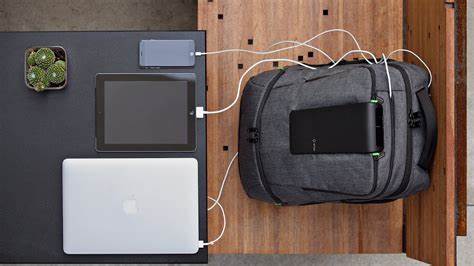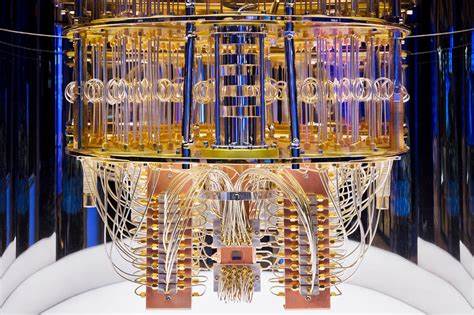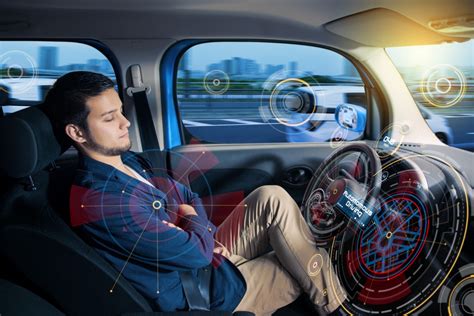Innovative Technologies.
Innovative technologies have revolutionized the way we live, work, and interact with each other. From artificial intelligence to virtual reality, these advancements have opened up a world of possibilities for businesses and individuals alike. Innovative technologies are constantly pushing the boundaries of what is possible, allowing us to create new products and services that improve our lives and make the world a better place. From faster communication to smarter automation, these technologies are transforming how we interact with each other and our environment.

There are many unique gadgets in the world, each with their own innovative features and capabilities. Here are some examples:

Flying Cars:
While flying cars have been a staple of science fiction for decades, they are quickly becoming a reality. Several companies, including Terrafugia and Aero Mobil, are working on creating flying cars that can take off and land vertically, providing a new level of mobility for commuters.

Smart Mirrors:
Smart mirrors are designed to help users get ready in the morning by providing information about the weather, news, and their schedule. Some smart mirrors even come with built-in cameras that can analyze skin health and provide personalized skincare recommendations.

Self-Driving Luggage:
Self-driving luggage is a new type of suitcase that can follow its owner around without needing to be pulled. Using sensors and GPS, self-driving luggage can navigate crowded airports and public spaces, making travel easier and more efficient.

Smart Sleep Masks:
Smart sleep masks are designed to improve sleep quality by using light therapy and soundscapes to create a more relaxing and restful sleeping environment. Some smart sleep masks even come with built-in EEG sensors that can monitor brain waves and adjust the sleep experience accordingly.

Holographic Displays:
Holographic displays use lasers and mirrors to create 3D images that appear to float in mid-air. These displays are being used in a variety of applications, from retail displays to medical imaging, and could transform the way we interact with digital content.

Personal Robots:
Personal robots are designed to help with tasks around the home, from cleaning to cooking. These robots use artificial intelligence and machine learning to learn and adapt to their owners’ habits and preferences, making them a valuable addition to any household.

Smart Backpacks:
Smart backpacks are designed to make life easier for commuters and travelers by providing built-in charging ports, anti-theft features, and GPS tracking. Some smart backpacks even come with built-in speakers and voice assistants, making them a true all-in-one gadget.

Quantum Computing:
Quantum computers are computers that use quantum bits, or qubits, instead of classical bits. Qubits can represent both 0 and 1 simultaneously, allowing quantum computers to perform certain calculations much faster than classical computers. This technology has the potential to revolutionize fields such as cryptography, drug discovery, and climate modeling.

Augmented Reality:
Augmented reality (AR) is a technology that overlays digital information onto the real world. This technology has already been used in gaming and entertainment, but it has the potential to be used in a variety of industries, from education to healthcare. For example, doctors could use AR to visualize medical procedures in real time, and architects could use it to preview building designs.

Self-Driving Cars:
Self-driving cars have been in development for several years, and many experts predict that they will become mainstream in the coming years. These cars use a variety of sensors and algorithms to navigate roads and traffic without human intervention. Self-driving cars have the potential to make driving safer and more efficient, and they could also reduce the number of cars on the road.

Blockchain:
Blockchain is a decentralized database that can be used to securely store and share data. It has been used primarily in the financial industry for cryptocurrency transactions, but it has the potential to be used in a variety of industries, from healthcare to voting systems. Blockchain technology could make data more secure and transparent, and it could also reduce the need for intermediaries in many industries.

Artificial Intelligence:
Artificial intelligence (AI) has already had a significant impact on many industries, and it is likely to continue to grow in importance in the coming years. AI refers to the development of computer systems that can perform tasks that typically require human intelligence, such as visual perception, speech recognition, and decision-making. AI has the potential to transform industries such as healthcare, finance, and transportation.

Smart Water Bottle:
A smart water bottle is a water bottle that can track your hydration levels and remind you to drink water throughout the day. Some smart water bottles also come with features such as temperature control and flavor infusion.

Virtual Keyboard:
A virtual keyboard is a device that projects a keyboard onto any flat surface, such as a desk or table. It uses infrared technology to detect keystrokes, allowing you to type without a physical keyboard.

Sleep Headphones:
Sleep headphones are headphones designed specifically for sleeping. They are usually wireless and have a flat, comfortable design that won’t interfere with your sleep. Some sleep headphones also come with built-in sleep aids, such as white noise or calming music.

Portable Espresso Maker:
A portable espresso maker is a small, handheld device that allows you to make espresso on the go. It usually works by pumping hot water through finely ground coffee, producing a rich, flavorful espresso shot. Some portable espresso makers are also compatible with coffee pods for added convenience.

Quantum Teleportation:
Quantum teleportation is a process that allows quantum information to be transferred from one location to another instantaneously. While teleporting people or objects is still far off, the potential applications of quantum teleportation include secure communication, quantum computing, and cryptography.

Space Elevator:
A space elevator is a theoretical device that could transport people and cargo from Earth to space without the need for rockets. The concept involves a cable that stretches from Earth to a counterweight in space, allowing objects to be transported up and down the cable using a series of lifts.

Brain-Computer Interfaces:
Brain-computer interfaces (BCIs) are devices that allow direct communication between the brain and a computer. In the future, BCIs could be used to control prosthetic limbs, assist people with disabilities, and even allow people to control devices using their thoughts.
Overall, these unique gadgets are just a few examples of the innovative technology that is being developed around the world. As technology continues to evolve, we can expect to see even more exciting and unique gadgets in the years to come.
